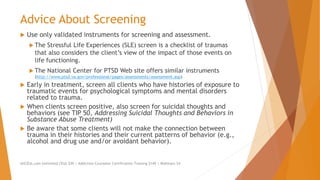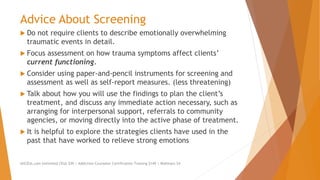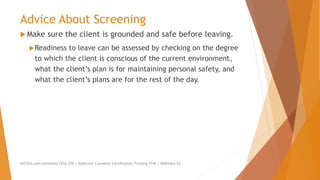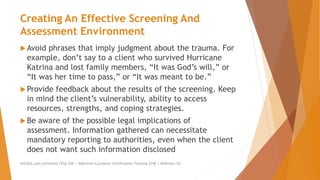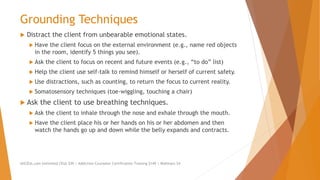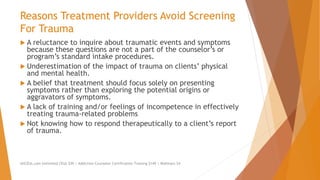The document outlines principles and practices for trauma-informed care, emphasizing the importance of creating a safe environment for clients and recognizing the origins of trauma-related symptoms. It highlights essential screening domains, the significance of ongoing assessments, and the barriers in identifying trauma, including client reluctance and provider challenges. Additionally, the document discusses cultural considerations and the risk of misdiagnosis in trauma-affected individuals, advocating for sensitive and responsive treatment approaches.
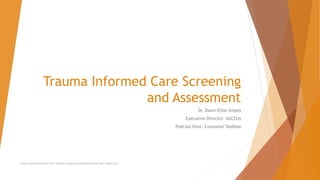

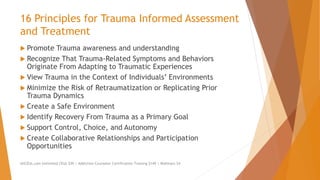
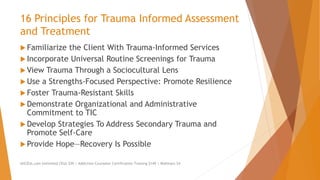
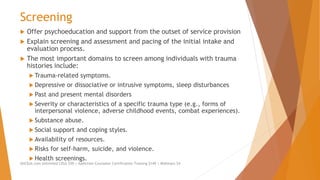
![Advice About Screening
Discussing the occurrence or consequences of traumatic events
can feel as unsafe and dangerous to the client as if the event
were reoccurring.
Don’t encourage avoidance of the topic or reinforce the belief that
discussing trauma-related material is dangerous.
Initial questions about trauma should be general and gradual.
By going over the answers with the client, you can gain a deep
understanding of your client
Ask all clients about any history of trauma; use a checklist to
increase proper identification of such a history
See the online Adverse Childhood Experiences Study Score Calculator
[http://acestudy.org/ace_score] for specific questions about adverse
childhood experiences).
AllCEUs.com Unlimited CEUs $59 | Addiction Counselor Certification Training $149 | Webinars $4](https://image.slidesharecdn.com/traumainformedcarescreeningandassessment-180111171613/85/Trauma-informed-care-screening-and-assessment-6-320.jpg)
